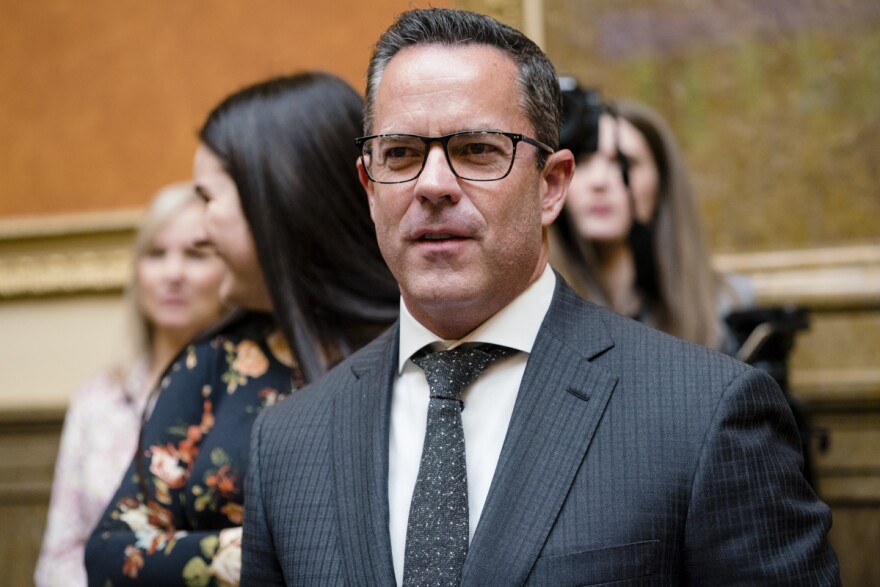Utah lawmakers are celebrating their newfound power to call themselves into special session without approval from Gov. Gary Herbert. Whether they’re playing coy by saying it will be used sparingly remains to be seen.
This month, Utah voters approved Constitutional Amendment C by nearly a two-to-one margin, which allows the legislature to call itself into special session “if two-thirds of the Utah Senate and House members agree that convening is necessary because of a fiscal crisis, war, natural disaster, or emergency in the affairs of the state.”
Unofficial results show 63 percent of Utahns favored the measure, which means the Utah Legislature will join 35 other state legislative bodies with that authority beginning Jan. 1, according to the National Conference of State Legislatures.

Republican lawmakers like Brad Wilson, R-Kaysville, applauded the amendment’s passage while at the same time providing assurances that lawmakers’ newfound power “will probably be very rarely used.”
Wilson is the one who sponsored the resolution earlier this year to put the question before voters. He will also take over as House Speaker next year.
“It puts an equal branch of government on equal footing with the executive branch, and I think that’s the way that it should be,” Wilson said.
Senate President-elect Stuart Adams, R-Layton, also predicted the provision would be rarely used, “but it’s there,” he said. “I think it’s another tool to allow us to take care of the needs of our citizens if we need it.”
While Gov. Gary Herbert opposed the amendment, which is the product of a power struggle between him and the legislature dating back to 2017, he said he didn’t have a “big, burning problem” with its passage.
The governor’s biggest concern was with the loosely-defined language about state emergencies being grounds for a potential special session.
“They can define ‘emergency’ themselves,” Herbert said at his monthly KUED news conference last week. “Which means, ‘Well, we didn’t get this bill passed, we got this crunch time coming up, we’ve got this issue ... .’” could all be potential excuses for lawmakers to call themselves into session, he said.
But Herbert said he is confident that Wilson and Adams will use restraint and will not “inappropriately” call their chambers into special session.
Wilson, citing a “great relationship” with Gov. Herbert’s office, said he could not foresee any reason to utilize the amendment in the near future.
Despite a Republican supermajority in the legislature, Rep. Mike Schultz, R-Hooper, said it can still sometimes be difficult to reach a two-thirds majority on many issues.
“That’s hard to do, so any issue would have [to have] broad consensus inside the legislature,” Schultz said.
Plus, Wilson added, more special sessions would mean more work for lawmakers.
“There’s a myth … that lawmakers like being called into special session. That is not the case,” Wilson laughed. “It’s not something we enjoy a whole lot.”


